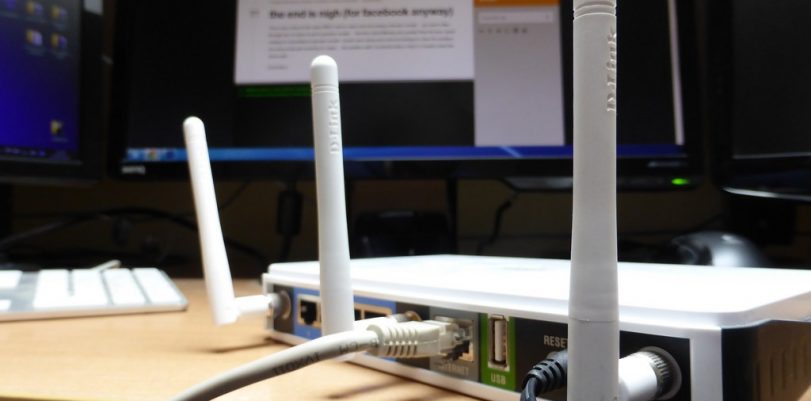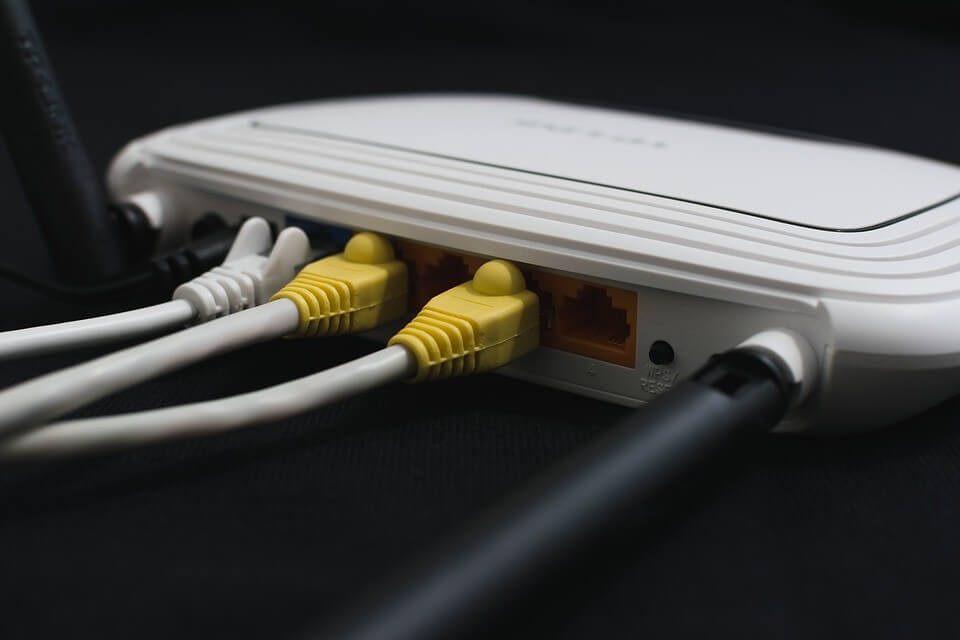VPNs are the tool of the 21st Century. They can help you gain some privacy while you browse the web and do your things, they can allow you to access geographically restricted content from any part of the globe. They also protect your data and information against unwanted leaks and permit you to connect several devices at the same time to a virtual and secure network.
Saying that Virtual Private Networks can make your life easier is like saying that water makes things wet. It has pros and cons, but the overall package is enticing, and it’s the reason why this tool is increasing in popularity in all markets.
There is more than one way to bring the VPN experience into your life. You can download a VPN provider to your personal computer or your smartphone, or you can configure your router to act as a VPN, so the whole house or office has access to the endless benefits of setting up a Virtual Private Network to secure all your assets.
You have to make sure your router, which is the device that shares Internet connection to one or more devices connected to a wireless network, can support VPN as a server, which most of them are capable, and as a client, with the intention of accessing remote servers and having full contact with all the VPN features.
How a VPN router works
A VPN router is a device that allows you to connect several remote devices to the company’s or home’s network to gain a safer, more reliable online experience. You know by now which are the benefits of a VPN. With a VPN router, you can set up a whole network that enjoys those aids.
It is easy to understand how a VPN router works. You sign up to a VPN provider and then configure your router with your VPN so all data and traffic that the user (or users) produces go through a virtual tunnel, which will keep it protected, and it will hide your real online identity.
Best Place to Buy VPN Routers?
So, what is VPN and what are some of its advantages?
Virtual Private Networks, or VPN, consists of data encryption technologies that guarantee a significant upgrade in the way Internet operations are done, especially in the privacy and user protection departments.
They encrypt your data and traffic because they “build” virtual “tunnels” with that objective in mind. This information travels to remote servers, where the VPN will give the user a temporary IP address to browse the web without being tracked by any third parties or agencies, like government or advertisers.
Some of the encryption technologies used by VPNs vary from seller to seller, but the most famous and useful are IP security (IPSec), Layer 2 Tunneling Protocol (L2TP)/IPSec, Secure Sockets Layer (SSL) and Transport Layer Security (TLS).
The market is full of quality VPN providers. However, and because of its excellent customer service and the fact that it has servers in many locations in the world, TorGuard has the edge over any other choice. Also, this option allows users to connect five different devices at the same time.
Why configure my VPN through the router and not directly in the computer?
Well, first of all, let’s clarify something: you can configure the VPN server of your choice directly on your personal computer or device. It doesn’t necessarily have to be at the router level, but it is more convenient to do it that way.
If you run the VPN from your routing device, then all of the devices connected to the router will have the benefits of obtaining a secure, private connection that also allows for online streaming and geo-blocking evasion.
Sure, configuring the VPN through the router and not individually for every device may mean more work, but it will be one session of work, whereas doing it the other way would imply that, if you want to configure four devices, you will have to follow instructions four different times.
Advantages of configuring your router to act as a VPN server and client
There is always the possibility of manually setting up a VPN on each device you have in your house, although this will take you some time and it will depend on the number of devices that your VPN provider allows you to connect.
However, if you choose to go the VPN router way, you will:
- Enjoy the reliability and privacy of data and traffic protection at work or home, protecting all your resources and letting you browse the web in peace.
- Set up cost-effective business processes. Long distance calls and expensive message services will be a thing of the past.
- Build a home network and be able to have access to it from anywhere in the world.
- Watch streaming content online, download all kinds of content and entering blocked foreign pages no matter where you are.
- Reduce IT costs.
- Perform necessary, but dangerous operations like transactions in your bank account with the peace of mind that no one will steal your credit card information.
What’s the downside of setting up your connection through VPN on your router?
One of VPN’s main disadvantages is that you can lose some Internet speed, and this is especially true if the bandwidth you have available is lost to the multiple devices connected to the virtual “tunnel” that the VPN creates.
How to set up your VPN on your router?
- Buy a VPN-enabled Router: you can found them online or even in department and specialized tech stores.
- Sign up for a VPN: go to your preferred choice’s website, complete the information and payment methods and acquire a quality option.
- Set up a VPN connection to your router: make sure to choose the “router download” option that most quality options have. If your provider doesn’t have this feature, then check your router instructions.
- Connect to the server you selected on your VPN router: when completed, connect your devices to the Wi-Fi signal that your VPN router delivers.
- Done! Now you can enjoy all of the VPN’s benefits on all your devices.
What are some of the best VPN routers?
Some of the best options for this year are:
- NETGEAR Nighthawk AC1900 Router
- ASUS RT-N16 Router
- Linksys E4200
- Linksys E1200
- ASUS RT-N66U
- ASUS RT-N16
- Netgear WNDR4000
- Netgear R7000 AC1900
In conclusion, the VPN experience is best enjoyed if you set up the Virtual Private Network on your router instead of doing it on every device connected to the network. If you choose this way, then you will not have to connect each device in the building individually to a VPN, because the router is already configured to deliver VPN connection to all equipment joining the party.
Configuring your router to act as a VPN server and client will allow you to support several devices connected at the same time and enjoying the privacy and protection enhancement that VPN offers. Your company data and information will be safe, or that photo album you prefer to keep to yourself.
If you are in a working environment, having a VPN router and a quality provider is an optimal outcome for standardizing working patterns and communication measures, and it also acts as a cost-controlling tool because every interaction made through the VPN will be reliable, fast and efficient.
With a VPN router, you will be able to gain access to hundreds of sites and streaming services around the world that are currently blocked because of location and geographical issues. For example, you will enter to every Netflix region in the catalog, to Canada’s CBC, the UK’s BBC channels, Indian Star Sports, and all the web pages live sports events, movies, TV series and shows you like. With VPN, you have the control.

